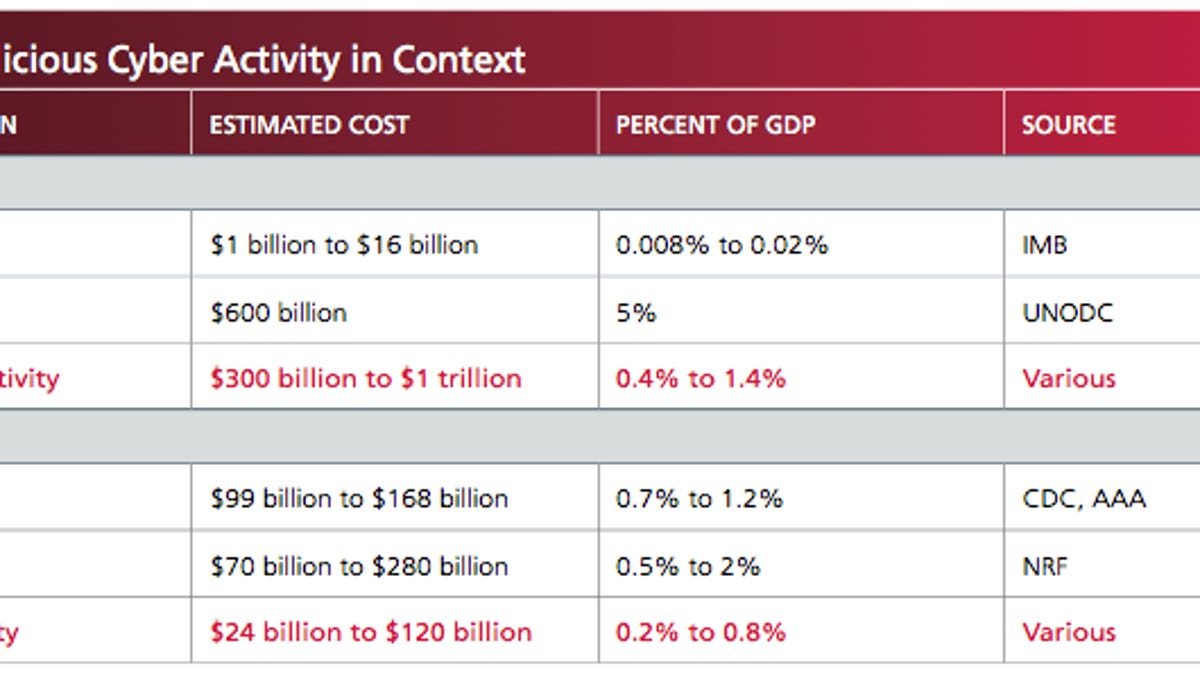Cyberattacks account for up to $1 trillion in global losses
A new report by McAfee shows that hacking and cybercrime is costing the global economy billions; however, it's not as bad as was previously reported.

While still costly, cyberattacks might not be depleting government cash at the rate previously thought.
A new joint report released Monday by security firm McAfee and the Center for Strategic and International Studies has lowered the estimate from $1 trillion in global annual losses to a range of $300 billion to $1 trillion.
The report's authors say that estimating the annual costs of cyberattacks is extremely difficult because some companies hide their losses, while others don't even know the value of what has been stolen from them.
In the new report, the authors look at losses in six categories: the loss of intellectual property, cybercrime, loss of business information, service disruptions, the cost of securing networks, and reputational damage to a hacked company.
"We use several analogies where costs have already been quantified to provide an idea of the scope of the problem, allowing us to set rough bounds -- a ceiling and a floor -- for the cost of malicious cyber activity, by comparing it to other kinds of crime and loss," the report reads.
For example, in the U.S., car crashes cost the country $99 billion to $168 billion per year, or 0.7 percent to 1.2 percent of the gross domestic product. In comparison, cyberattacks cost the U.S. $24 billion to $120 billion per year, or 0.2 percent to 0.8 percent of the GDP. The report also puts U.S. job losses from cyberattacks at 508,000.
In 2009, McAfee released a report that said data theft and breaches from cybercrime were costing businesses as much as $1 trillion globally in lost intellectual property and expenditures for repairing the damage. While the global figure from McAfee's new report still states $1 trillion, it is tampered by the $300 billion low-end figure.
Not only are hackers putting a drain on the global economy, they are also getting their hands on tons of data. A study released by Team Cymru in February said that overseas hackers are stealing as much as one terabyte of data per day from governments, businesses, militaries, and academic facilities. According to Team Cymru, the hackers are so sophisticated and are running such massive campaigns that many of them could be state-sponsored.
McAfee's report released today is a preliminary analysis for a larger study that looks even deeper into the costs of hacking and cybercrime.
"Cybercrime and cyber espionage cost the global economy billions of dollars every year. The dollar amount, large as it is likely to be, may not fully reflect the damage to the global economy," the report reads. "Cyber espionage and crime slows the pace of innovation, distorts trade, and brings with it the social costs associated with crime and job loss. This larger effect may be more important than any actual number and it is one we will focus on in our final report."

